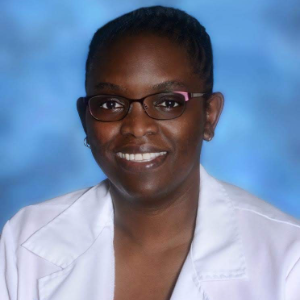Title : A labor of love: Increasing nursing specialty certification and BSN or higher prepared nurses on a labor and delivery department
Abstract:
The purpose of this project was to increase speciality certification and BSN or higher prepared nurses in the Labor and Delivery (L&D) Department. The L&D Department has 145 nurses and more than 9,000 deliveries a year. Research shows that adequate staffing and BSN prepared nurses are associated with lower mortality and fewer adverse events in acute care hospitals (Boyle, 2017).
L&D employs two unique nursing roles-Clinical Mentor and Clinical Educator. A Clinical Mentor is a BSN prepared nurse who facilitates successful nursing orientation of all new nurses hired and supports their preceptors. The Clinical Mentor rounds on the orientee-preceptor dyads on the unit and meets with them formally every two weeks throughout the clinical orientation. The Clinical Mentor informs department nurse leaders of progress and opportunities. The Clinical Mentor also supports new graduate nurses in the yearlong Nurse Residency Program. The Nurse Residency Program discusses professional development opportunities such as climbing the clinical ladder, furthering education and become certified once eligible. A Clinical Educator is a certified Master’s prepared nurse who supports the ongoing growth and development of nurses through continuing education assessing-planning-implementing-and evaluating learning needs. The Clinical Educator also assures competency, performs bedside teaching rounds with new graduate nurses, and reviews the status of the education plans at monthly Unit Based Council meetings.
The Unit Based Council have members that attend the larger organization-level Nursing Shared Governance meetings and have bidirectional communication to the Professional Development Council. The Professional Development Council shares data on each department’s BSN or higher percentage as well as percent of nurses with professional board certification which allows the Unit Based Council to set annual targets for both education and certification. To further support departments to achieve their target goals, the Professional Development Council developed brochures with the process of how to submit for tuition reimbursement and apply for the 2% bonus once certification has been achieved. The Clinical Mentor and Clinical Educator assist with finding certification review courses, organizing study groups and encouraging all nurses to get certified and/or advance their formal nursing education.
The L&D Department had a 2% increase in BSN or higher in nursing and was in the 90th percentile of the national benchmark. Furthermore, they had a 6% increase in specialty certification being in the 75th percentile of the national benchmark for greater than 500 bed hospitals.
Audience Take Away Notes:
- The audience will be able to identify key factors for increasing specialty certification and education level of bedside nurses.
- This presentation will help the audience learn about incentives for professional development such as shared governance, clinical ladder, certification, and formal education.



